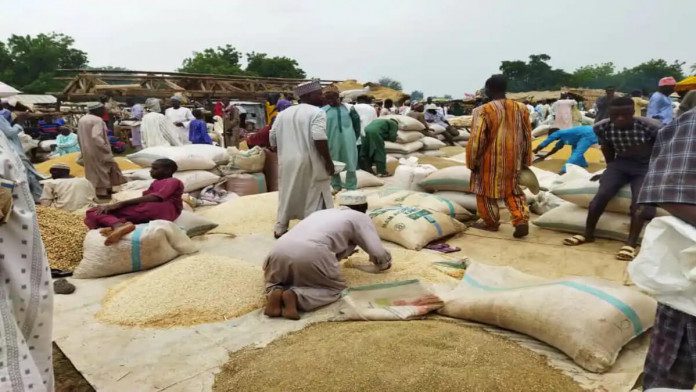News in Brief:
– The reopening of Nigeria’s land border with Niger in March 2024 has led to a significant drop in rice prices, with paddy rice falling by a third and consumer staples like parboiled rice dropping.
– It is perceived as a positive step for Nigeria’s rice industry, but the country still faces a production gap and relies on imports to meet domestic consumption
The price of paddy rice in Nigeria has dropped significantly following the reopening of the country’s land border with Niger in March 2024, according to various market surveys conducted by a news outlet. This development is seen as a welcome relief for rice millers who had been struggling with high paddy prices and production shortfalls.
Reportedly, paddy rice prices have fallen by a third since February 2024, dropping from a record high of ₦625,000 per metric ton to ₦425,000 in April. The decline is attributed to the resumption of cross-border trade with Niger, which allows millers to access cheaper paddy from neighboring countries.
Impact on consumers as reopening of Niger border boosts rice industry
Meanwhile, the decrease in paddy prices has also led to a drop in the cost of locally-produced rice. Analysis by the above-mentioned media outlet shows a 12.5% decrease, with a decline from ₦80,000 two months ago, to ₦70,000 current price. The price of imported rice has also fallen by 17.5% due to Nigerian naira gaining against the dollar in March.
The reopening of the Niger border has revived the rice milling industry in Nigeria, which had been facing challenges due to scarcity of paddy. Many mills that were forced to shut down production last year are now reopening as they can source paddy more easily from neighbouring countries. This is according to a statement by Jonathan Joshua, chairman of African Rice Mill in Nasarawa and president of the Association of Small-Scale Agro Producers in Nigeria.
However, despite the recent price drops, Nigeria still faces a significant rice production gap. The Rice Processors Association of Nigeria (RIPAN) estimates that the country needs 11 million metric tons of paddy to meet domestic consumption but currently produces only about 4.8 million metric tons. The shortfall therefore necessitates imports to bridge the gap and keep the milling industry operating at full capacity.



